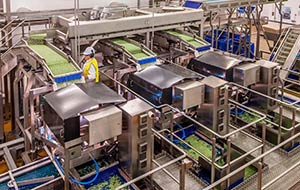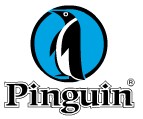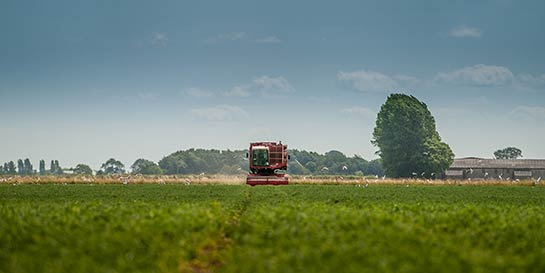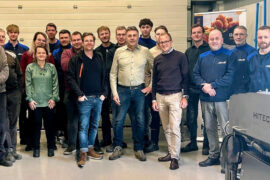By far, the most popular IQF vegetable in the UK is the pea, which is frozen at the peak of freshness shortly after harvest. Requiring no extra preparation, the legume can be cooked in minutes while still retaining nutrients, color and taste. In 2014 British consumers bought more than £508 million worth of frozen vegetables, with nine out of ten shoppers having purchased frozen peas at some point in the past year.
The proper technique for industrially producing fresh-frozen peas presents a major logistical challenge in getting the legume from the field to the freezer in such a tight time span as to guarantee top quality for end users. The UK’s largest frozen vegetable processor, Pinguin Foods — which supplies major multiple retailers including Marks & Spencer, Waitrose, Sainsbury’s and Tesco — pledges to get the job done in under 150 minutes. This requires the process to be managed with military-like precision and split-second timing.
The Bühler Group, a major supplier of optical sorting solutions to food and non-food manufacturing industries, is instrumental in helping Pinguin achieve its Key Performance Indicator (KPI) of delivering fresh-frozen peas in no more than 150 minutes from its 28-acre processing site in Kings Lynn, Norfolk, England. Its London-based Buhler Sortex Ltd unit is also helping to streamline the production process by ensuring that all foreign materials and defective products are removed quickly and efficiently, while helping to ensure the peas are as fresh and desirable as possible at the point of freezing.
Bühler’s optical sorting technology has served the global fruit and vegetable processing industry for decades. While its sorting technology has been around since the 1940s, continued technology advances have resulted in many benefits, including enhanced equipment accuracy and speed in detecting and ejecting foreign materials (FM), extraneous vegetable matter (EVM) and other unwanted objects.
“Previously, the sorters used at the plant were only capable of a rejection rate of 15 good to one bad from the reject stream,” said Neil Winner, Pinguin’s operations director. “Today, our range of Bühler Sortex optical sorters is operating at three to one, which gives us incredible cost benefits on yield. This investment has ensured that all of our product is efficiently and effectively sorted.”
SORTEX optical sorters are designed to be used on production or packing lines, scanning and analyzing the product. Using high definition cameras, broad spectrum lighting and infrared technology, they can also detect and remove product with color defects or blemishes, as well as foreign objects.
 “Our technology is not only looking for any color or shape defects,” said David McCambridge, applications specialist at Buhler Sortex. “By using Profile shape recognition, color detection and enhanced InGaAs camera technology, we can simultaneously remove FM such as insects, wood, glass, stones, seeds or flower heads as well as snails, slugs and any other material which will render the product unacceptable. In addition, the optical sorters remove any EVM (extraneous vegetable matter), whether or not it is derived from the pea plant.”
“Our technology is not only looking for any color or shape defects,” said David McCambridge, applications specialist at Buhler Sortex. “By using Profile shape recognition, color detection and enhanced InGaAs camera technology, we can simultaneously remove FM such as insects, wood, glass, stones, seeds or flower heads as well as snails, slugs and any other material which will render the product unacceptable. In addition, the optical sorters remove any EVM (extraneous vegetable matter), whether or not it is derived from the pea plant.”
The technology — high resolution cameras with optical sensors — enables Pinguin Foods to handle product with very subtle colour defects, while the SORTEX E range also uses InGaAs technology to detect a wider range of contaminants and stray fragments of common packaging materials. Existing technologies often find it difficult to distinguish foreign objects from product, for example fragments of light wood from potato or cauliflower, cardboard from carrot and some clear and color plastics from vegetable mixes. Bühler’s InGaAs technology was developed to identify these difficult to detect contaminants and work seamlessly with the SORTEX E at the end of packing lines to perform a final quality check to identify and reject foreign materials that may have entered the chain during processing.
 Bühler’s PROfile technology also provides Pinguin Foods with an advanced shape detection system, which intelligently detects and separates touching objects, allowing for higher capacity shape sorting. In addition, the customized, high response ejector is designed to assure a long life span and is capable of working at high speeds with high-capacity intakes. The sorters are controlled by a large, color touch-screen, making the equipment easy to operate.
Bühler’s PROfile technology also provides Pinguin Foods with an advanced shape detection system, which intelligently detects and separates touching objects, allowing for higher capacity shape sorting. In addition, the customized, high response ejector is designed to assure a long life span and is capable of working at high speeds with high-capacity intakes. The sorters are controlled by a large, color touch-screen, making the equipment easy to operate.
Food safety and hygiene are paramount in any modern food processing factory, meaning high standards are crucial. Pinguin’s King’s Lynn plant is no exception; the open design of the sorters makes them simple to clean,ensuring scrupulous sanitation levels are maintained.
“Bühler’s optical sorters are just one part of an extremely intensive process that enables us to deliver the peas from the field to the bag in 150 minutes. It’s a tight schedule with the pea harvest period only lasting between six to eight weeks of the year, starting in mid-June through to August,” explained Winner.
The peas are harvested by the Holbeach Marsh Co-operative Ltd (HMC), a cooperative of around 30 member growers who produce vining peas for freezing from a growing region of more than 5,000 acres – ranging from Boston and Spalding to Wisbech and Chatteris across to King’s Lynn and into North West Norfolk – all within 25 miles of the Pinguin processing plant.

Picked by the latest generation of Scania-powered pea harvesting machines, the produce is rapidly transported to the Pinguin factory where it is first subjected to a tenderness test, using a tenderometer scale, as approved by Campden BRI.
Only the sweetest, most tender peas are graded AA and earmarked for the supermarkets’ premium ranges. These account for around 65% of the crop. The remainder are graded accordingly, with lower grade peas destined for supermarket value line packs.
Once quality is assessed, the peas are mechanically cleaned to remove any dirt, debris, stones and stray pods. They are then blanched for 60-90 seconds to deactivate the enzymes that decompose vitamin C and other nutrients, causing flavor and color changes.
The peas are thereafter IQF-frozen at a temperature of minus 40°C to ensure their core freezes so quickly that the cell structure and flavor remain intact. After freezing, they are sorted using seven of Bühler’s SORTEX E1D optical sorters, weighed and placed into bulk-storage freezers.
Before packaging, four Bühler Sortex optical sorters work simultaneously to provide a final quality check to ensure no further impurities have infiltrated during processing and storage — for example, fragments of cardboard, wood and plastics. The peas are then sent to a central distribution depot in Wisbech, from where they are dispatched to Pinguin’s customers around the country and abroad.
Winner concluded: “This year, the crop is looking good, with an expected total volume of 44,000 tons harvested from the highly fertile East Anglian Fen land. Using Bühler’s optical sorters allows us to make the most of this harvest by removing all foreign materials and other contaminants. We’ve increased the amount of good product sorted which has resulted in less complaints from consumers and in turn, suppliers.”




